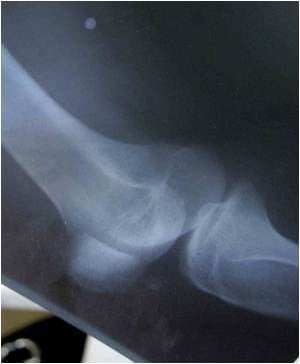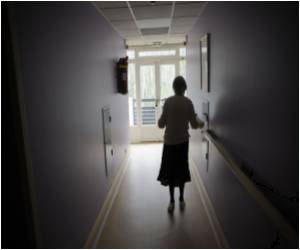Using commercial dopplers at home by pregnant mothers can detect the heart rate of their fetus and can even detect if they are at risk of heart arrhythmias.

‘Fetal heart monitor is more effective, convenient, empowering, less expensive and pregnant mothers can easily access it at home.’





While commercial Dopplers have been available for years, the research team led by Dr. Bettina Cuneo, director of Fetal Cardiology in the hospital's Colorado Fetal Care Center and professor of Pediatrics and Obstetrics at the University of Colorado School of Medicine, found them to detect problems in fetuses at risk for a severe rhythm problem called complete atrioventricular block (CAVB).Around 3 percent of all pregnant women carry an antibody called anti-SSA, or Sjogren's antibody, which can be detected by a blood test.
In 4 percent of anti-SSA positive pregnancies, maternal antibodies cross the placenta at 18 weeks, causing inflammation and fibrosis of the fetal conduction system, resulting in CAVB. Once established, CAVB is irreversible and 31 percent of affected fetuses die in utero or in the first year of life.
If caught in the "emergent" stage the time of irregular rhythm when the fetal heart is transitioning from normal rhythm to CAVB there is an opportunity for treatment.
Although pregnant mothers who test positive for anti-SSA usually receive weekly echocardiograms from their provider, emergent CAVB develops within 24 hours, so surveillance by echo rarely has been successful.
Advertisement
"Each year, approximately 120,000 pregnant women learn they carry the anti-SSA antibody, which can unfortunately result in the death of their fetus or newborn due to CAVB," said Dr. Cuneo.
Advertisement
In the pilot program, two mothers, whose in-office echo surveillance produced normal results, detected the irregular rhythm of emergent CAVB during home monitoring. In both cases, emergent CAVB developed in less than 24 hours. More than 220 anti-SSA positive mothers have now completed the study. Participants agreed that the process decreased stress, and all said they would monitor again in subsequent pregnancies.
"Learning I was positive for SSA antibodies and my unborn son was at an increased risk of developing fetal heart block was very overwhelming, but participating in this study helped me feel empowered," said Rachel Fedorczuk, a mother and participant in the Heart Sounds at Home study.
"Being able to listen to my son's heartbeat at home every day was a relief and truly a blessing. The home monitor, in conjunction with the care and support system I received from Children's Colorado, gave me great peace of mind. Participating in the study was an invaluable experience, and I took great comfort in knowing that if my son developed heart block while I was pregnant, his life could be saved. Every parent should have the same opportunity."
Source-Eurekalert















